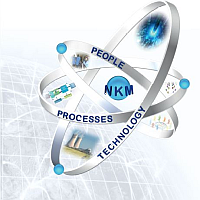Speaker
Mr
Jim Gulliford
(OECD/NEA)
Description
The use of nuclear technology and materials for a wide range of industrial, scientific, medical and energy purposes creates a strong need to assure the availability of relevant skills to support their safe and effective use. Whatever the expected future of nuclear power in different countries, there remains a strong need to sustain a high level of nuclear scientific and engineering expertise in order to contribute to and inform a wide variety of policy-making, safety, technological, medical, and industrial activities.
The current talent-base in nuclear technology and science has been built in these countries since the 1950s. The pioneering generation is now long retired and the generation they trained during the expansion period of nuclear technology is now also approaching retirement age. While many aspects of the knowledge accumulated during the pioneering period is well preserved through scientific research reports, design documentation and other publications, and reflected in university training programs, there is greater concern about how to sustain the practical science and technology skills and expertise that can only be obtained through challenging activities such as research and advanced technology development projects.
The ageing of the general workforce in the nuclear industry, declining student enrolment in science and engineering programs, and the risk of losing accumulated knowledge and experience have drawn attention to the need for better management of nuclear knowledge. Significant effort needs to be made to maintain adequate skilled workforce and attract new employees for long-term sustainability.
Addressing these challenges is very difficult for all but the largest and best-funded national programs. Even for these large programs, the opportunities are fleeting and the attractiveness of research project experiences can be mixed. Working together in an international context , countries can achieve a powerful solution to this situation by:
1. providing the unique and exciting opportunity to work as part of a large, multinational, multidisciplinary effort;
2. assuring that research is practical and targeted to solve real-world problems will to help enable emerging scientists and engineers capture state-of-the-art know how;
3. providing diversity of experiences that can be tailored to the personal trajectory of individuals;
4. creating a network of future technical leaders which will be an asset for the international community.
| Country or International Organization | OECD/NEA |
|---|
Author
Mr
Jim Gulliford
(OECD/NEA)

